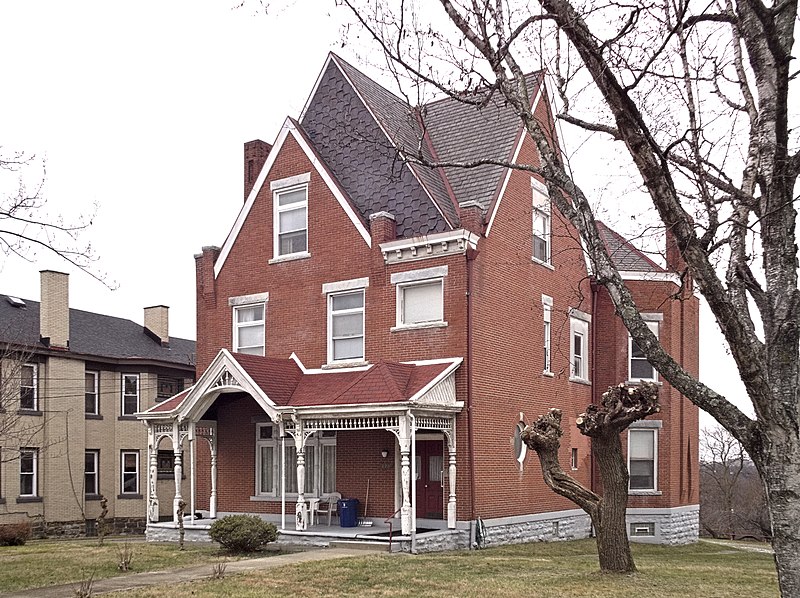
With its steeply pitched roof and calculated asymmetry, it would probably be legitimate to call this house Queen Anne style. Note the gingerbreading of the porch roof.


With its steeply pitched roof and calculated asymmetry, it would probably be legitimate to call this house Queen Anne style. Note the gingerbreading of the porch roof.


The lobby of the Koppers Building is one of our richest Art Deco interiors, and here it is decorated for Christmas.



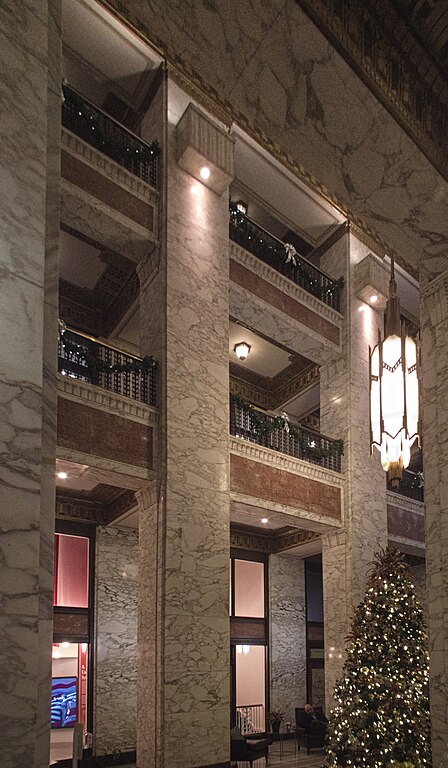
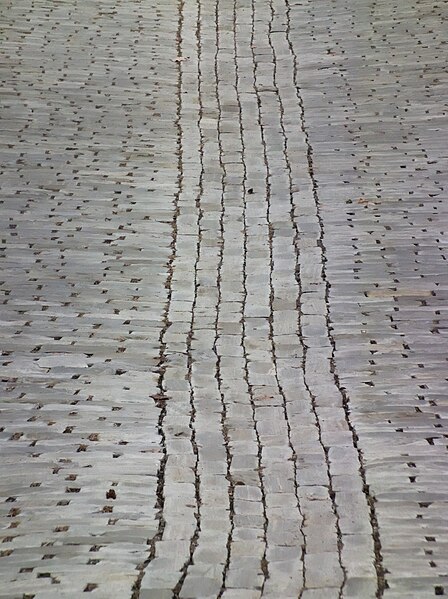
Norton Way, a Belgian-block alley on Mount Washington. Note the drainage channel in the middle; it is probably not necessary to mention that this is a steep slope.
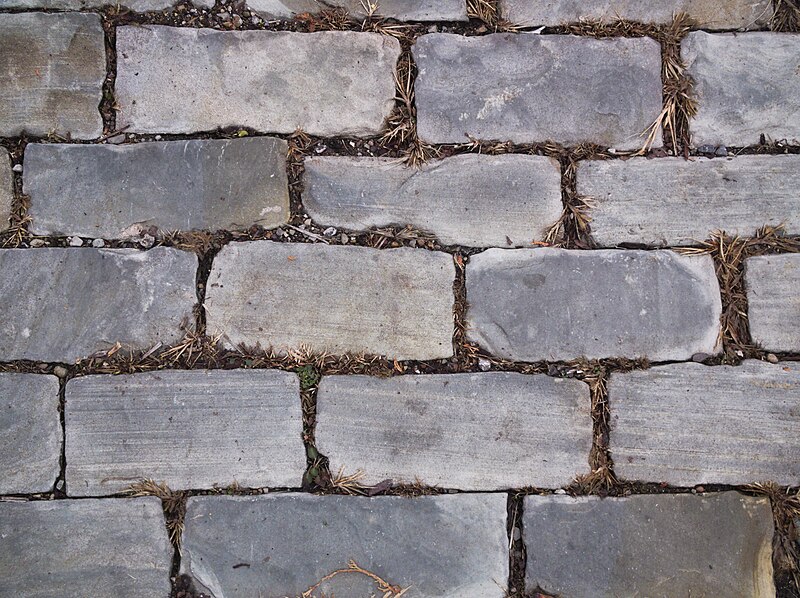



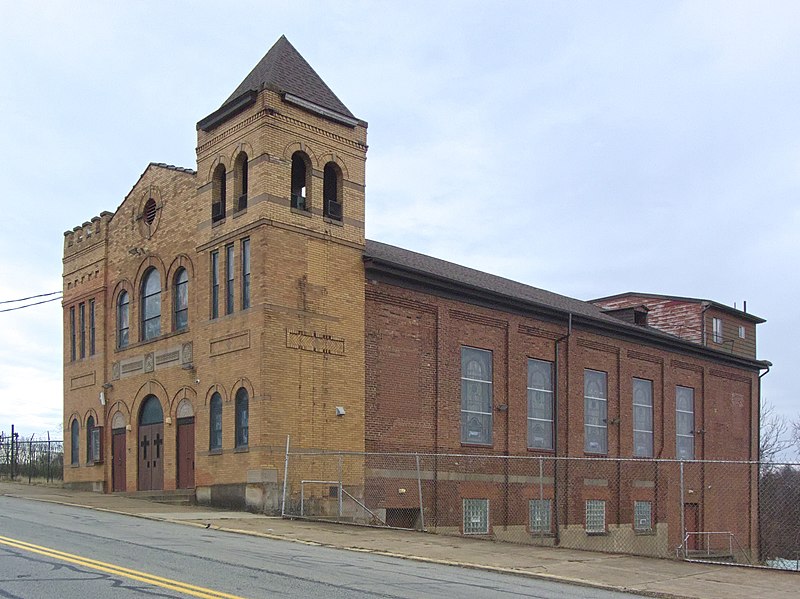
Here is an interesting example of the persistence of architectural traditions. To look at this church, you might guess that the main building dates from the 1870s or 1880s. It has the typical look of a small Pittsburgh church of that time—the shallow-pitched roof, the walls divided into sections by simple pilasters. In fact, according to the cornerstone, it was built in 1924, and “remodeled” in 1949. The “remodeling” doubtless included the Romanesque front and corner tower.
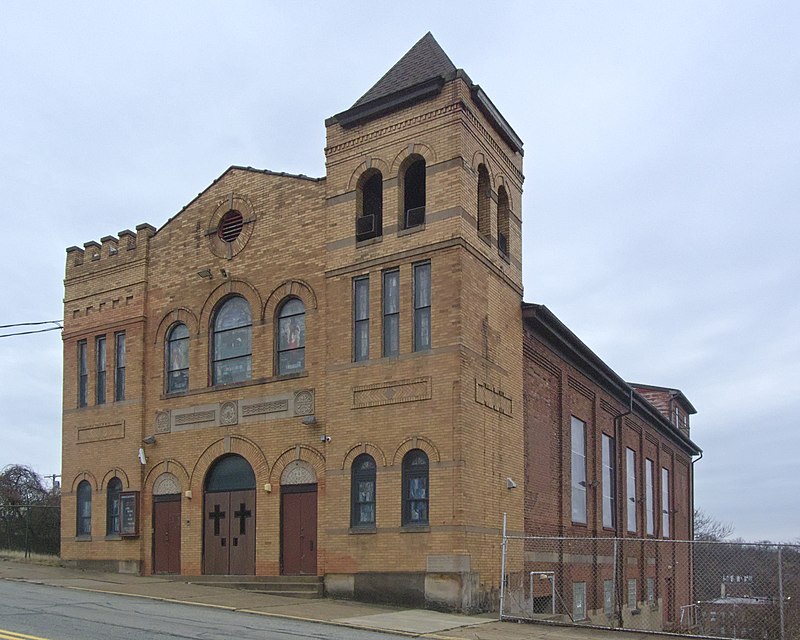

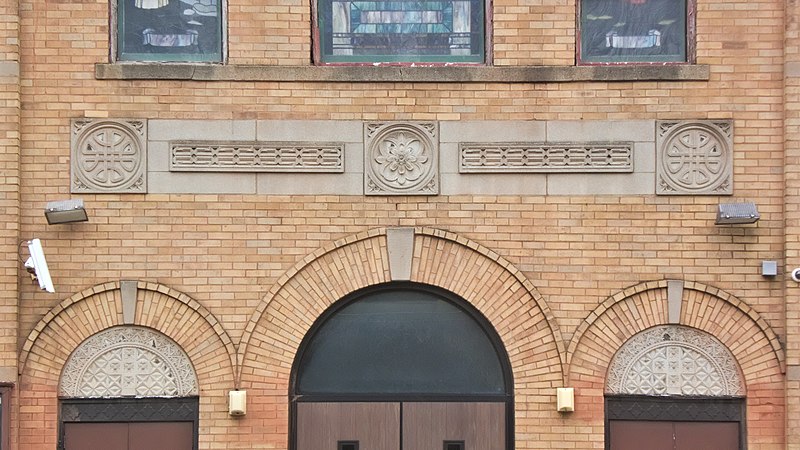
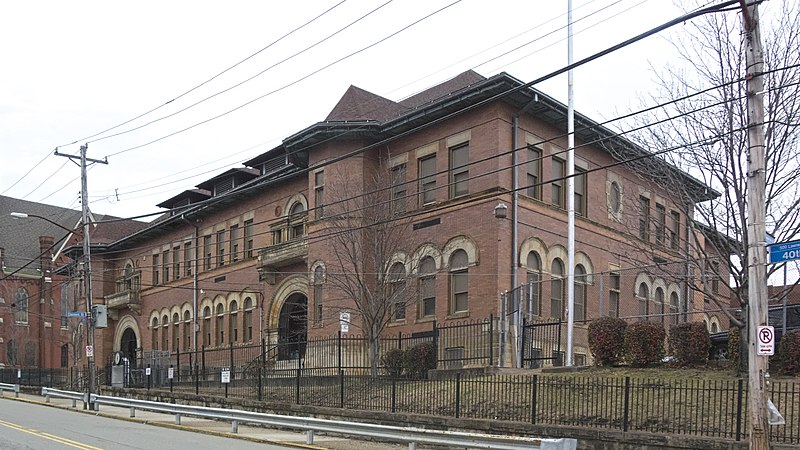
This fine Renaissance palace, built in 1897, was designed by Samuel T. McClaren. It sits on 40th Street at Liberty Avenue, where it is technically—according to city planning maps—in Bloomfield. Most Pittsburghers, however, would probably call this section of Bloomfield “Lawrenceville,” since it sticks like a thumb into lower Lawrenceville, and the Lawrenceville line runs along two edges of the school’s lot.
For some reason the style of this building is listed as “Romanesque revival” wherever we find it mentioned on line. Old Pa Pitt will leave it up to his readers: is this building, with its egg-and-dart decorations, false balconies, and Trajanesque inscriptions, anything other than a Victorian interpretation of a Renaissance interpretation of classical architecture? Now, if you had said “Rundbogenstil,” Father Pitt might have accepted it, because he likes to say the word “Rundbogenstil.”
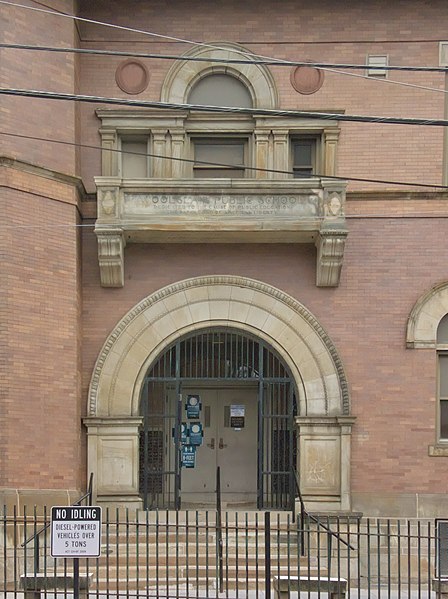


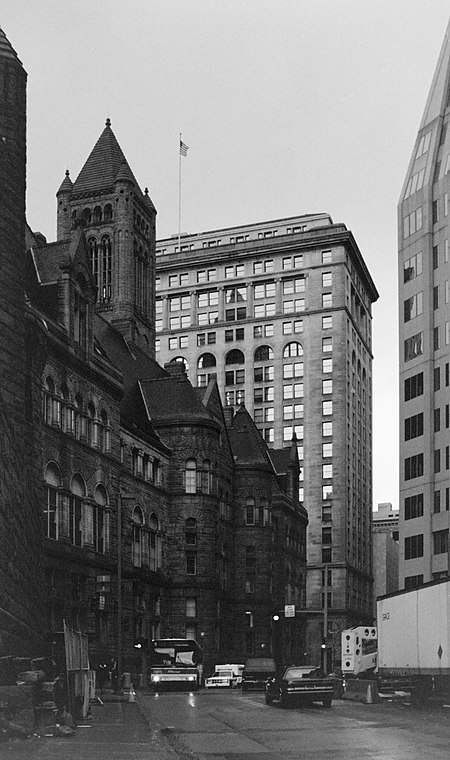
Taken on film in 1999. Note the bus coming toward you; apparently old Pa Pitt has been taking bus-coming-toward-you pictures for at least twenty-three years.

Built in 1929, this church on Boggs Avenue is a fine example of the elegantly streamlined Gothic style that was fashionable for a few years before Gothic architecture disappeared entirely from our design vocabulary. It now belongs to a real-estate company, which uses it as offices but keeps the exterior well.
Perhaps you are thinking that this does not look very much like a Pittsburgh church, because there are no utility cables in front of it. Here:

That’s better.


A block or so away on the other side of Boggs Avenue is an older church, much altered but still recognizable:

Though it is festooned with artificial siding and expensive new brickwork, with a comically inappropriate broken pediment over the front door, this is clearly a church from the late 1800s. In fact it was built in 1884, as we can tell because whoever did the renovations was kind enough to place the old date stone in the new brick front:

And there is the name of the church: Evangelische Lutherische Zions Kirche, which is German for Zion Evangelical Lutheran Church. This is the original home of the congregation that later built the splendid Gothic edifice down the street.

You will note that this was one of those churches with the sanctuary upstairs; we have added yet another to our growing collection.

Henry Hornbostel designed two prominent synagogues in Pittsburgh. The still-prospering Rodef Shalom is familiar to everyone, partly because it sits at the eastern end of the Fifth Avenue monument row in Oakland and Shadyside. This one, built in 1923, is perhaps a more adventurous design. Hornbostel used old and new materials and design elements from different traditions to create a building that immediately looked as if it had been there for a millennium or more. After a few years as a school, it is now in the midst of being repurposed as apartments.
Technically, according to the neighborhood border that goes up the middle of Negley Avenue on the city planning map, this building is in Garfield. Socially, it is more associated with East Liberty.


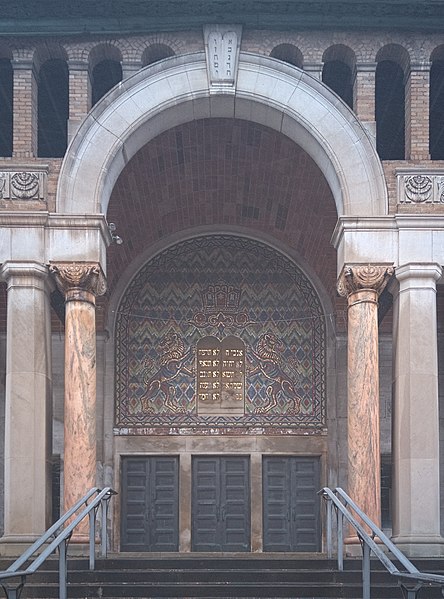




Update: Father Pitt regrets to say that this building has been demolished to make way for a much larger facility.
An elegant little classical firehouse, still in use as a medic station, on Lafayette Avenue at the corner of Federal Street. It dates from before 1910 and after 1903, according to the Pittsburgh Historic Maps site.
